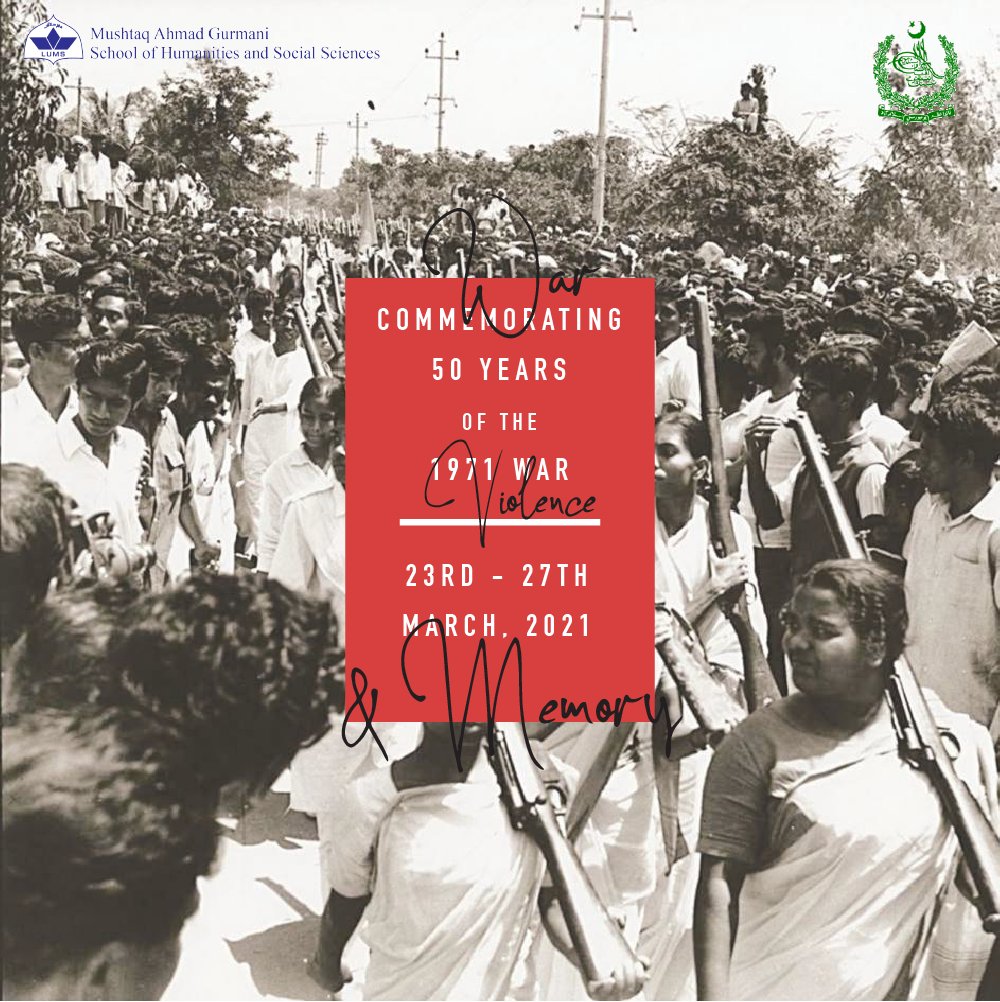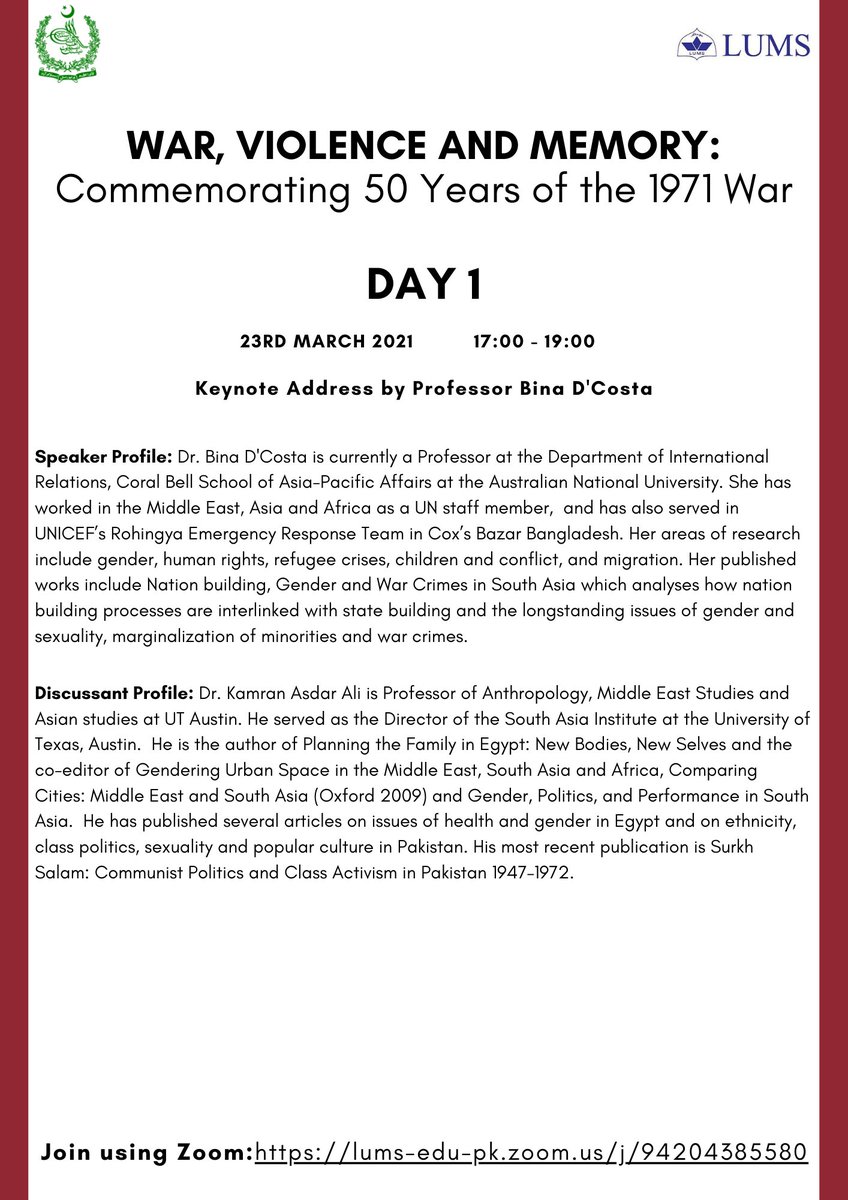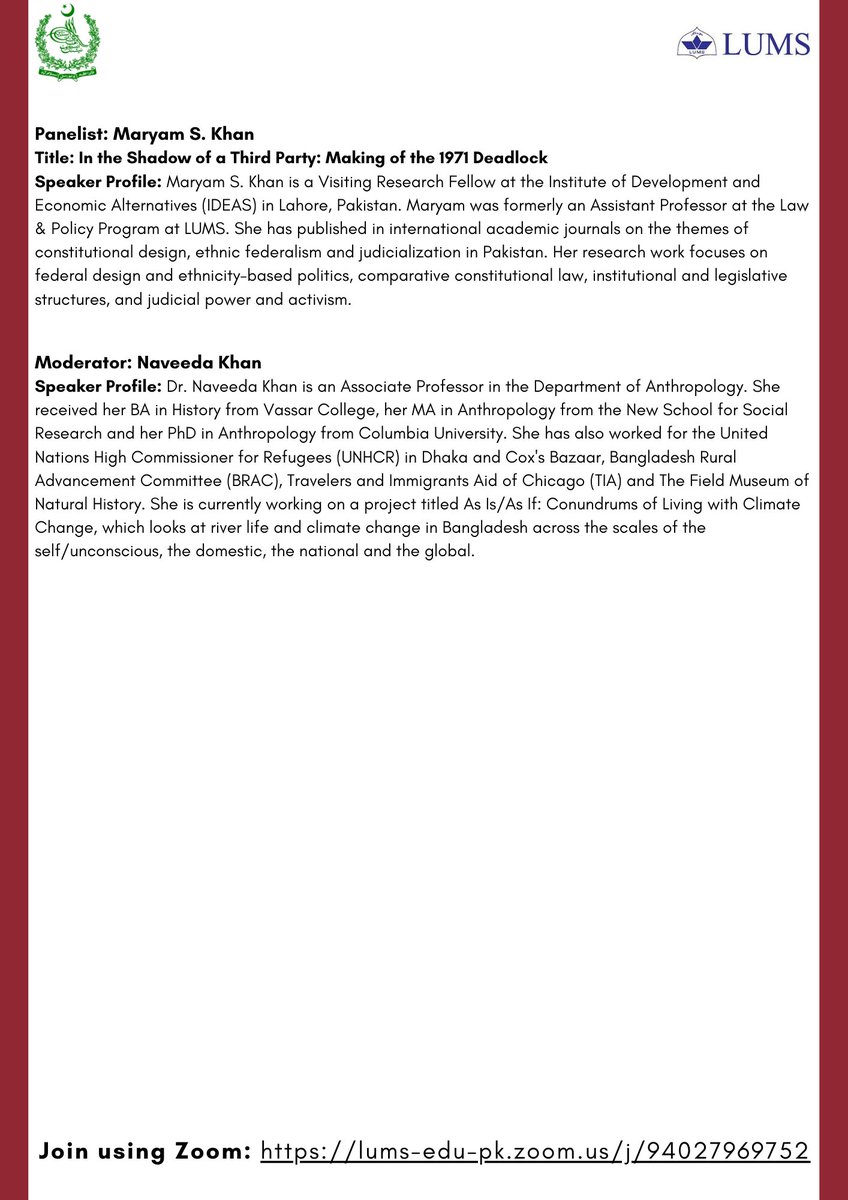
The School of Humanities and Social Sciences,LUMS, in collaboration with the National Institute of Pakistan Studies (NIPS),Quaid-i-Azam University, is organizing an online conference to commemorate the fiftieth anniversary of the Bangladesh War of Liberation. Here's the schedule: 

Tuesday 23 March, 17:00-19:00 (Lahore time)
Keynote address by Professor Bina D' Costa
Discussant: Profesor Kamran Asdar Ali
Join using Zoom:
lums-edu-pk.zoom.us/j/94204385580
Keynote address by Professor Bina D' Costa
Discussant: Profesor Kamran Asdar Ali
Join using Zoom:
lums-edu-pk.zoom.us/j/94204385580

Wednesday 24 March, 19:00-22:00 (Lahore time)
Panel: East Pakistan, 1947-70: History, Politics, Culture
Join using Zoom:
lums-edu-pk.zoom.us/j/94027969752

Panel: East Pakistan, 1947-70: History, Politics, Culture
Join using Zoom:
lums-edu-pk.zoom.us/j/94027969752


Wednesday 25 March, 17:00-22:00 (Lahore time)
Panel: War, Violence, Genocide
Join using Zoom:
lums-edu-pk.zoom.us/j/91887324238


Panel: War, Violence, Genocide
Join using Zoom:
lums-edu-pk.zoom.us/j/91887324238



Friday 26 March, 20:00-22:00 (Lahore time)
Dramatic reading in Urdu, English and Bangla by Taimoor Shahid and Moushumi Bhowmik
Join using Zoom:
lums-edu-pk.zoom.us/j/97112132158
Dramatic reading in Urdu, English and Bangla by Taimoor Shahid and Moushumi Bhowmik
Join using Zoom:
lums-edu-pk.zoom.us/j/97112132158

Saturday 27 March, 19:00-22:00 (Lahore time)
Panel: Post-1971
Join using Zoom:
lums-edu-pk.zoom.us/j/99812062742
Panel: Post-1971
Join using Zoom:
lums-edu-pk.zoom.us/j/99812062742
The purpose of this conference is to gather academics and non-academic voices on one platform to showcase emerging research and critical approaches that can enhance our understanding of the 1971 conflict.
The conference will cover the political history of East Pakistan between 1947-71, the democratic struggle for rights, and the genocidal military operation that resulted in mass displacement and massacres.
Additionally, it seeks to trace the aftermath of 1971 in Pakistan as well as the literature, memories, and historiographies on Bangladesh and its subaltern voices of struggle and suffering.
Poster designed by our brilliant student @NayyabNaveed. Administrative stuff handled by super efficient @merabichrayar.
• • •
Missing some Tweet in this thread? You can try to
force a refresh








